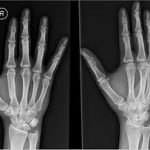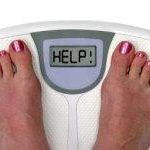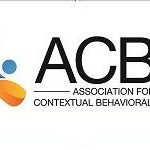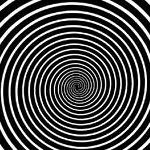Anorexia

It is estimated that about 20 percent of people who suffer from anorexia will die prematurely due to complications from the disease, according to the National Association of Anorexia Nervosa and Related Disorders (ANAD). For this reason alone, it is important to recognize the signs of anorexia nervosa so that treatment is provided to those …
Read More

Did you know that about 24 million people suffer from an eating disorder such as anorexia, bulimia and binge eating? Anorexia, one of the most common eating disorders, is a mental illness that if left untreated can result in death. If you suspect that a loved one may be suffering from anorexia, it is important …
Read More

“Pro-ana” refers to the promotion of the eating disorder anorexia nervosa. Many pro-ana organizations claim to exist as nonjudgmental environments for anorexics, while others deny anorexia as an eating disorder and instead refer to it as a lifestyle choice that should be respected. Since the scientific community recognizes anorexia nervosa as a serious illness, “pro-ana” …
Read More

There is no sure way to prevent anorexia. While we know some of the causes of anorexia which those who develop the condition seem to share, there are too many variables to predict anorexia before the behavior actually emerges. What you can’t predict, you can’t prevent. With that in mind, understanding the disorder does give …
Read More

This story was written exclusively for EatingDisorders.com by Roxanne Scolari-Wright. Click here to read Part 1. When Shelby got sick, so did I, and I started my own journey into hell. As a caregiver for my mom and my daughter, I needed an escape – and I found it in a bottle. Watching my daughter …
Read More

A support group is part of the treatment “package” in anorexia nervosa care. Being able to talk with others who share the experience adds to the effectiveness of therapy from outpatient treatment with a therapist, psychiatrist and dietitian. Even residential treatment will commonly include attending a support group when that is available. Online or Offline? …
Read More

Anorexia nervosa – commonly referred to as anorexia – is one of the most common eating disorders. Sufferers of anorexia see themselves as overweight when, in fact, they are extremely underweight, even emaciated. Studies suggest that about one percent of adolescent females are affected by anorexia, according to Anorexia Nervosa and Related Eating Disorders (ANRED). …
Read More

Many individuals with eating disorders report that getting treatment isn’t the hard part of finally addressing the problem – it’s avoiding relapse during recovery. Given that anorexia is considered both a psychological and physiological condition, “curing” it isn’t necessarily possible – one can only hope to manage the disease on a day-to-day basis to avoid …
Read More

Behavior therapy tries to teach patients how their actions influence how they feel and empower them to change their lives by changing these behaviors. Therapy consists of several techniques used in tandem and all can be applied to anorexia treatment and recovery. Role Playing uses pretend situations to teach better responses. For example, a therapist …
Read More

Hypnotherapy is distinguished from hypnosis in two ways. The first is the goal – like the name implies, hypnotherapy is a type of therapy and treatment is the objective. This makes it different than other types of hypnosis, which may be for entertainment, memory recall, or used as a one-off cure for smoking cessation or …
Read More
 Eating Disorder Self Test. Take the EAT-26 self test to see if you might have eating disorder symptoms that might require professional evaluation. All answers are confidential.
Eating Disorder Self Test. Take the EAT-26 self test to see if you might have eating disorder symptoms that might require professional evaluation. All answers are confidential.
Find a Treatment Facility Near You
Click on a state below to find eating disorder treatment options that could be right for you.










 Eating Disorder Self Test. Take the EAT-26 self test to see if you might have eating disorder symptoms that might require professional evaluation. All answers are confidential.
Eating Disorder Self Test. Take the EAT-26 self test to see if you might have eating disorder symptoms that might require professional evaluation. All answers are confidential.